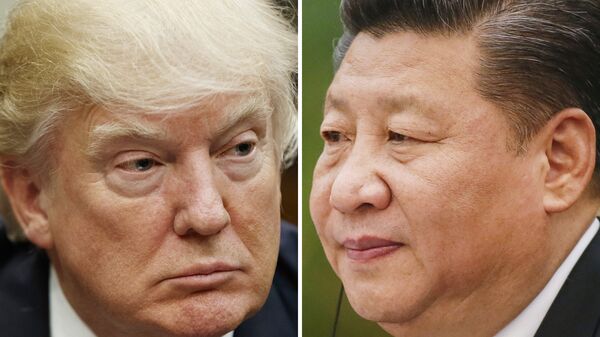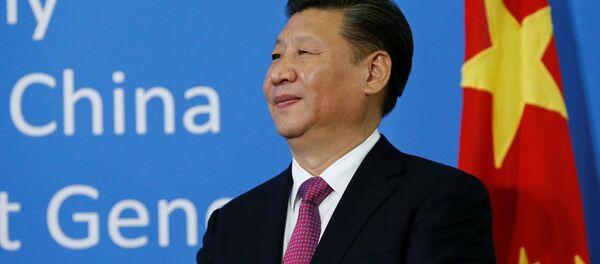China's president will arrive in Florida for talks with Trump on April 6 and 7 at the president's Mar-a-Lago estate, bringing together the leaders of the world's largest economic powers for their first face-to-face meeting.
The summit has already garnered a great deal of media attention, as the world tensely waits in anticipation for any possible changes in the Chinese-US political and economic relationship. Following Trump's election, US and Chinese officials briefly engaged in a back-and-forth diplomatic jousting match over a series of issues, from disagreements over economic and trade policy, to foreign policy issues (including Chinese concerns over US policy in the Korea and the South China Sea). However, in recent weeks, China has toned down much of its own criticism of the Trump administration.
On Thursday, President Trump took an opposite and frank tone, tweeting that his meeting with Xi would be "very difficult," and adding that the US "can no longer have massive trade deficits and job losses. American companies must be prepared to look at other alternatives," he stressed.
The meeting next week with China will be a very difficult one in that we can no longer have massive trade deficits...
— Donald J. Trump (@realDonaldTrump) 30 марта 2017 г.
...and job losses. American companies must be prepared to look at other alternatives.
— Donald J. Trump (@realDonaldTrump) 30 марта 2017 г.
Vowing to create a "level playing field" for American workers, Trump also signed two executive orders on Friday which he said were aimed at combatting foreign trade abuses, stressing that his administration would "take necessary and lawful action" to end the abuses, which have led to a US annual trade deficit of over $500 billion (to which the US-Chinese trade deficit contributes about $300 billion).
Zheng parried the administration's tough stance, saying that Beijing is not intentionally seeking a trade surplus or looking for trade advantages via unfair policies like currency manipulation. Trade relations, he said, have brought tangible benefits to both countries, with investments by Chinese companies in the US growing rapidly, thus creating jobs which may help to solve the trade deficit issue. China would also be prepared to expand its imports from the US, the diplomat added.
Commenting on this marked difference in tone, Viktor Supyan, deputy director of the Institute for US and Canadian Studies, an influential think tank under the Russian Academy of Sciences, told Sputnik that both countries' grand strategies were pretty clear.
"The US negotiating position comes down to the following: the more severe the pressure on the other party at the start, the more room there is for maneuver and backtracking afterwards," Supyan said.
Furthermore, he noted that "the interdependence between the two countries is very large." Accordingly, Supyan suggested that Trump's 'get tough on China' position will be difficult to carry on in practice. "Trump will press the issue on cybersecurity, but on other issues there will be disputes, and an active position taken by both sides." Therefore, he stressed, "the negotiations will be very tough at this first summit."
For his part, Wang Xianju, a senior expert at State Council Development Research Center, a leading state-run Chinese policy research agency, emphasized the importance of maintaining and expanding on the positive dynamics of the current relationship between the two countries.
"The importance of meeting between Presidents Xi and Trump for both sides lies in the very fact of its taking place – the [establishment] of contact between the two leaders," he said. "The dialogue will see the discussion of the situation in each country, the prospects for development of bilateral relations and existing problems. I hope that thanks to the visit, Chinese-American relations will see balanced development."



